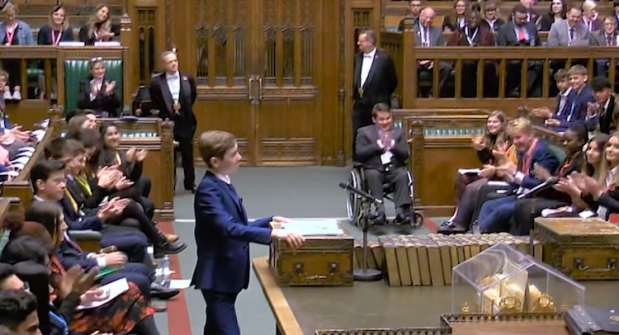When Boris ran to become leader of the Conservative party – and again when he campaigned in December’s general election – he was pitched by his supporters as a unifier. Boris was going to get Brexit done and then lead the country into a new era – the spats of the previous half a decade consigned to history’s dustbin. Unfortunately for Boris and indeed everyone else in Britain, that’s not the way things have worked out.
Right from the start, Johnson’s premiership has been marked by conflict. Only a few weeks in, he removed the whip from a host of Tory MPs, including the former Chancellor of the Exchequer Philip Hammond. Although many of these MPs eventually got the whip back, the tenor of the times was set. Far from being a unifier, Boris was going to be battling everyone and everything, constantly.
By my reckoning, the government is currently at war with the EU, the House of Lords, the civil service, famous footballers, the north of England, the mayor of London, sections of the Conservative party, a deadly virus, and too many others to continue to list. This is way too much conflict to take on at once and the signs of strain, both on Boris and his cabinet, are clear to see. We have had two prime examples of conflict burnout just this week.
One was the vote this week on free meals for children during the school holidays. This was handled very poorly by the government when it did not need to be. The simplest thing the government could have done was to just agree to give out the meals.
From a communications perspective, the government’s stance has been almost impossible to defend. When you are running a tight financial ship, it is clear to everyone – even those who disagree with you – why you can’t spend certain amounts of money. It becomes much more difficult to explain why children won’t be fed during half-term when you are seen to be financially profligate already. Your moral case breaks down, as it has this week. It doesn’t matter that a lot of the people crying about the shame of it all weren’t particularly interested in this issue a few months ago. It also doesn’t matter that you have good reasons for doing something, if none of those reasons cut through with the public.
The second example of conflict burnout is the Greater Manchester fiasco – a battle with the mayoralty of the region over lockdown and government financial support. Again, Boris’s government played its hand very badly. It gave Andy Burnham his ‘King of the North’ moment, which could well have long-term electoral repercussions for the Tories, given the number of northern seats they won in December. The government ended up giving Manchester the £60 million support package in the end anyhow, so the pain suffered here was mostly needless and counterproductive. Had they just given Burnham the extra £5 million he wanted, they would have probably avoided any bad press altogether. It’s this tendency to always go in aggressively to every conflict that creates these increasingly seriously problems for Boris.
That’s before I bring up losing a vote in the House of Lords by a majority of 226 or Sadiq Khan moving against the 10 pm curfew in London. Battling everyone all the time would take its toll on any government, but what hurts this particular one is the unholy combination of Covid, the Brexit transition period’s near end, and the fact that Boris is someone who likes to be liked by everyone – as opposed to being a natural warrior.
The losses are starting to pile up now for the government; and it has led to rumblings about Boris Johnson stepping aside or even being forced out of Number 10 by his own party, not even a year after his landslide election victory. That’s astonishing when you stop to think about it.
Boris has some big clashes ahead, ones he cannot avoid. We’re either headed for no deal Brexit and all that entails, or we get a thin, objectively bad deal that will then be picked apart ruthlessly by Starmer from one end and Farage at the other. The government should look to make peace where it can over the next six months at least, and only charge into battle when absolutely necessary. It’s no good picking every fight available when you’re not very good at fighting.
Got something to add? Join the discussion and comment below.
Get 10 issues for just $10
Subscribe to The Spectator Australia today for the next 10 magazine issues, plus full online access, for just $10.




















Comments
Don't miss out
Join the conversation with other Spectator Australia readers. Subscribe to leave a comment.
SUBSCRIBEAlready a subscriber? Log in